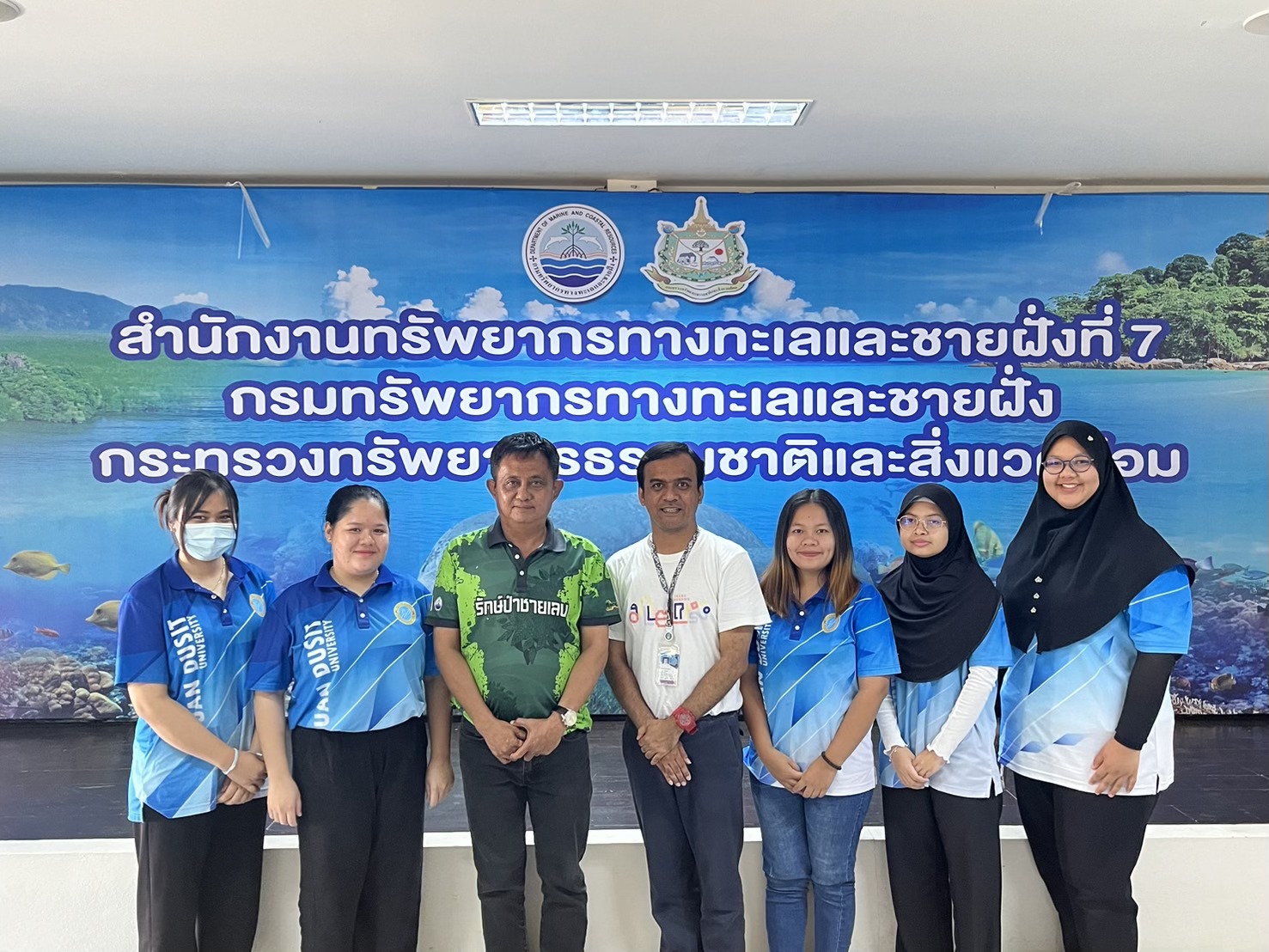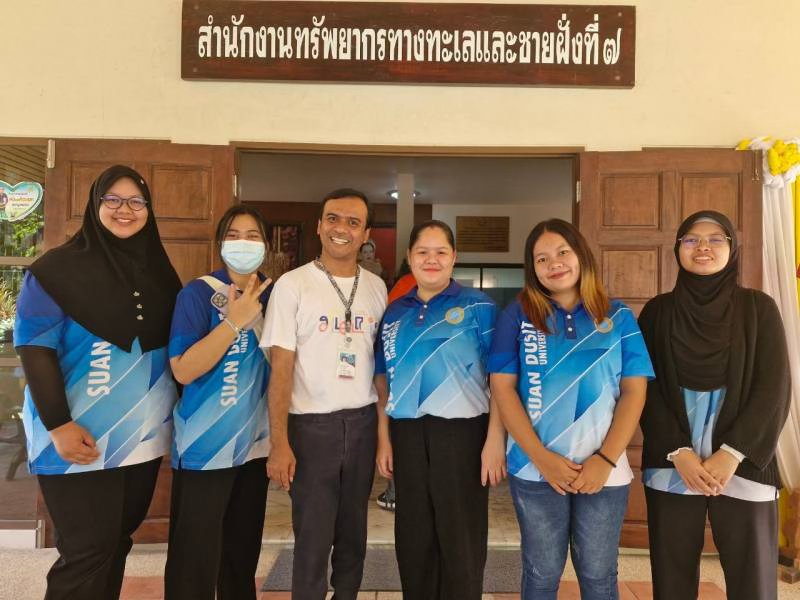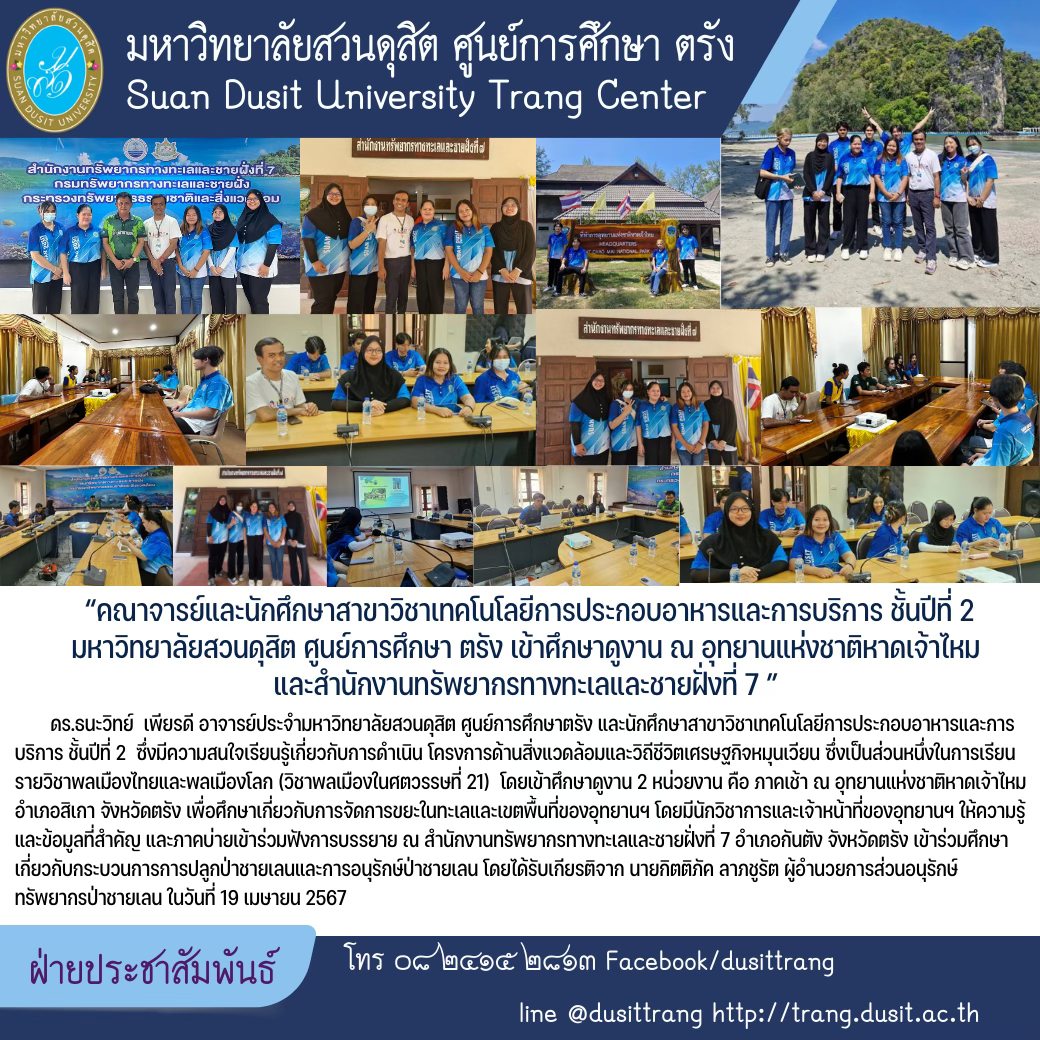Suan Dusit University (SDU), Trang Education Center, has consistently demonstrated its commitment to advancing marine conservation and sustainable utilisation of ocean and coastal resources through educational and experiential learning programmes. In alignment with its mission to foster environmental awareness and sustainable development, the university encourages students to engage directly with real-world marine ecosystems and community-based conservation initiatives along Thailand’s Andaman coast.

On 19 April 2024, faculty members and second-year students from the Program in Culinary and Service Technologyparticipated in an educational field trip to two key organisations:
- Hat Chao Mai National Park, Sikao District, Trang Province — where participants learned about marine debris management, waste reduction strategies within protected coastal zones, and environmental protection efforts led by park officers. The session provided insights into how national parks balance tourism, community access, and conservation.
- Department of Marine and Coastal Resources, Region 7, Kantang District, Trang Province — where students attended a lecture by the Director of the Mangrove Conservation Division on mangrove forest rehabilitation and sustainable management of coastal ecosystems. This session deepened students’ understanding of the ecological role of mangrove forests in protecting coastlines, supporting biodiversity, and mitigating the impacts of climate change.


This field learning activity integrated academic coursework on “Civic Engagement in the 21st Century” with environmental education and practical exposure to marine and coastal management systems. Through direct interaction with marine scientists, park officers, and local conservation practitioners, participants developed a holistic understanding of the relationship between humans, oceans, and coastal ecosystems. The programme also connected ecological concepts with circular economy principles, illustrating how sustainable management of natural resources contributes to long-term community resilience.
Tangible Outcomes and Impacts:
- Environmental Impact: Students gained a clearer understanding of threats such as marine debris, overexploitation, and habitat loss, while recognising the ecological importance of mangrove forests and marine protected areas.
- Educational Impact: The activity enhanced students’ critical thinking and systems understanding of sustainable marine resource management through experiential learning in real environments.
- Community and Institutional Impact: SDU acted as a bridge between local authorities and young learners, fostering partnerships in marine and coastal conservation while promoting youth engagement in sustainability initiatives.
This activity stands as direct evidence of Suan Dusit University’s dedication to promoting the conservation and sustainable utilisation of the oceans, seas, lakes, rivers, and marine resources. By combining classroom learning with field-based education, the university empowered students to become environmentally conscious citizens equipped to contribute to the protection and restoration of marine ecosystems. The initiative exemplifies how higher education can cultivate future leaders who integrate academic knowledge, practical experience, and social responsibility to advance sustainable development in Thailand’s coastal regions.
